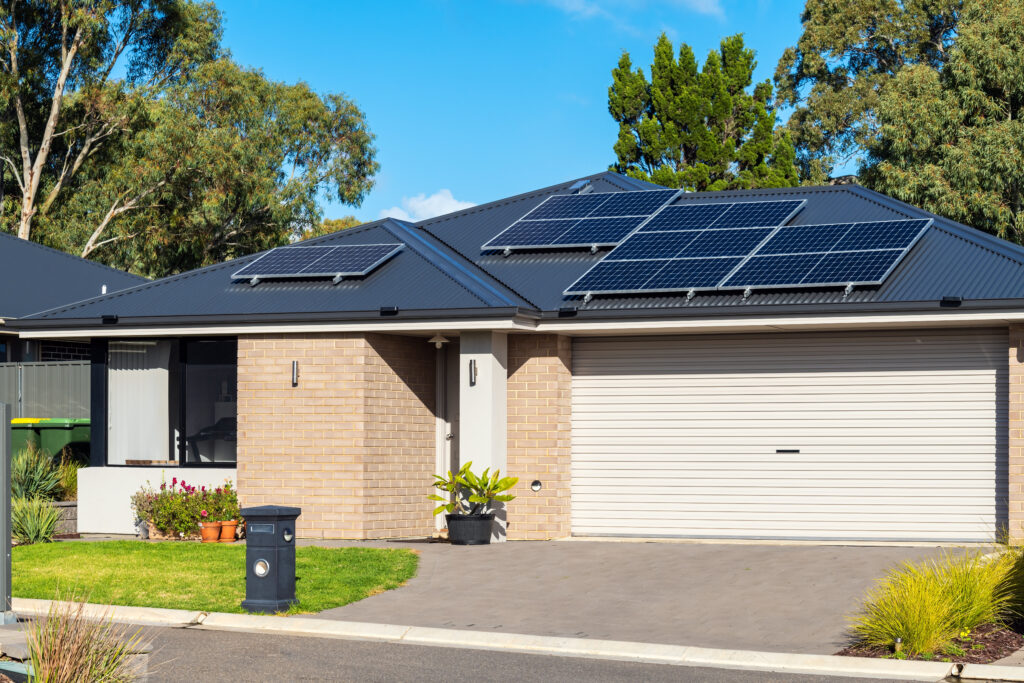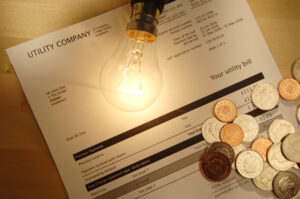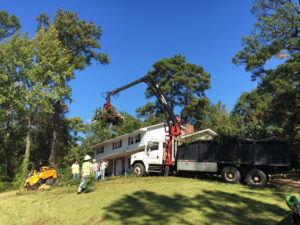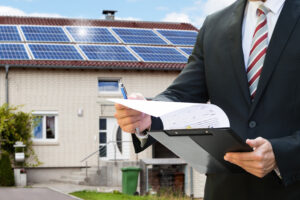
Solar energy can provide benefits to many homeowners — from the financial reward of savings on energy bills, to the ecological benefits of “going green”. While some folks may see a home with a solar power system as an added benefit, others may find it undesirable.
Regardless, the consideration of solar power and panels for the home requires research. Homeowners must explore the variety of products, evaluate the best system for the needs of the household, investigate cost savings, compare finance and/or lease terms, and finally, determine whether adding a solar system is right for their budget.
Is solar power is right for you?
 Before contacting a solar sales company, the homeowner should take time to evaluate whether adding solar panels to the home would provide enough financial benefit, plus meet the energy needs of the household. Factors for consideration are: house size, roof — condition and dimensions, climate zone, community regulations, local electricity rates and government incentives. As well, the homeowner may contemplate the following:
Before contacting a solar sales company, the homeowner should take time to evaluate whether adding solar panels to the home would provide enough financial benefit, plus meet the energy needs of the household. Factors for consideration are: house size, roof — condition and dimensions, climate zone, community regulations, local electricity rates and government incentives. As well, the homeowner may contemplate the following:
Current energy usage?
Am I using my energy wisely? Will solar panels reduce my monthly energy bill?
Review your energy bill for usage.  Determine ways that may reduce the current expense such as, changing light bulbs; installing dimmers; fixing a leaking faucet; repairing ductwork. Understand your cost of energy and how much you might save by changing to solar.
Determine ways that may reduce the current expense such as, changing light bulbs; installing dimmers; fixing a leaking faucet; repairing ductwork. Understand your cost of energy and how much you might save by changing to solar.
Sunlight Exposure?
Does my roof get enough sunlight throughout the year?
 Evaluate the sun’s path during daylight hours. How many hours of the day does the roof get sunlight? Calculate the number of hours that your roof is shaded. Does the sun/shade ratio change from season-to-season? Would solar panels provide the same benefit throughout the year?
Evaluate the sun’s path during daylight hours. How many hours of the day does the roof get sunlight? Calculate the number of hours that your roof is shaded. Does the sun/shade ratio change from season-to-season? Would solar panels provide the same benefit throughout the year?
Roof Condition?
Does the roof need repair before adding solar panels?
 Does the roof and/or shingles require repair or replacement before installation of panels? Will the roof handle the weight of solar panels? Shall I contact an independent roofer to evaluate the roof’s condition?
Does the roof and/or shingles require repair or replacement before installation of panels? Will the roof handle the weight of solar panels? Shall I contact an independent roofer to evaluate the roof’s condition?
Tree Removal?
Do I need to remove trees to create more sunlight for my home?
 Review landscaping around the property for sun exposure to the roof. Will panels get enough sunlight to perform at maximum efficiency? Consult with an arborist to estimate tree growth over a 25 year period and the impact of sunlight over the seasons. Will trees require removal or transplant?
Review landscaping around the property for sun exposure to the roof. Will panels get enough sunlight to perform at maximum efficiency? Consult with an arborist to estimate tree growth over a 25 year period and the impact of sunlight over the seasons. Will trees require removal or transplant?
Is solar power free?
Often, prospective customers for solar systems are told the panels will be free. But, we must know, there is no such thing as a free lunch…and in this case, no such thing as free solar panels. Customers will pay for the electricity that is produced by the panels, usually under a solar lease or power purchase agreement. What is the difference?
Solar Panel Lease
A solar lease is a contractual agreement between the homeowner and the solar energy company for installation of solar panels on the roof of the home. Usually, there is no down payment and the solar company is responsible for maintenance. The homeowner makes monthly payments to the solar leasing company at a fixed monthly amount or sells the electricity generated from the panels at a set price per Kilowatt-hour. The solar company is also entitled to all the rebates, tax breaks and incentives for solar power. Solar leases typically last 20 – 25 years.
Power Purchase Agreement (PPA)
A Power Purchase Agreement is an arrangement in which the solar company plans for the design, permitting, financing and installation of a solar energy system on a customer’s property. The homeowner does not own the hardware — the panels or inverter. The solar company sells the power generated to the homeowner at a fixed rate that is typically lower than the local utility’s retail rate. This lower electricity price serves to offset the customer’s purchase of electricity from the grid while the solar company receives the income from the sale of electricity as well as any tax credits and other incentives generated from the system.
PPAs typically range from 10 to 25 years and the solar company usually places a lien on the property. The solar company remains responsible for the operation and maintenance of the system for the duration of the agreement. At the end of the PPA contract term, a customer may be able to extend the PPA, have the solar system removed or choose to buy the solar energy system from them.
Buying, Selling or Refinancing a Home with Solar Panels
 Before entering an agreement for a solar power system, whether as an initial purchase, refinancing an existing contract, or purchasing a home with an existing system, you, the consumer, must obtain a copy of the solar panel contract. Take time to review the terms of the agreement. If you need clarification, consult with a real estate agent or real estate attorney for explanation of your legal and financial obligation. Determine whether this agreement is right for you by evaluating:
Before entering an agreement for a solar power system, whether as an initial purchase, refinancing an existing contract, or purchasing a home with an existing system, you, the consumer, must obtain a copy of the solar panel contract. Take time to review the terms of the agreement. If you need clarification, consult with a real estate agent or real estate attorney for explanation of your legal and financial obligation. Determine whether this agreement is right for you by evaluating:
-Monthly cost for panels
-Monthly cost for power
-Full term of lease or finance agreement.
Common questions:
-Ask whether you are able to assume the solar contract from the seller?
-Find out if the panels were purchased or leased.
-Inquire whether there is a lien on the property for the panels?
-Must the lien be satisfied before the sale?
-Does the solar panel contract allow for transfer to a new home buyer?
-Does the warranty transfer to the new home buyer?
Seek Legal Help from a Qualified Consumer Law Firm
 Flitter Milz is a nationally recognized consumer protection law firm that evaluates solar panel sales matters for potential violation of the consumer laws involving fraud, such as forged contracts, identity theft and credit reporting privacy violations. Contact Us
Flitter Milz is a nationally recognized consumer protection law firm that evaluates solar panel sales matters for potential violation of the consumer laws involving fraud, such as forged contracts, identity theft and credit reporting privacy violations. Contact Us
Pictured: Cary Flitter (center), Andy Milz (left), Jody López-Jacobs (right).







